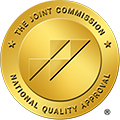At Georgia Sky Outpatient Detox, we use CBT for addiction by helping people understand their triggers and develop lasting strategies for recovery. Our trained therapists guide each person through personalized sessions to build skills for a healthier life. We provide a structured yet supportive environment where people can work through their challenges and make meaningful progress toward sobriety.
- Identifying Triggers: Recognizing what leads to substance use is the first step in making a change. People learn to identify emotions, situations, and thoughts that contribute to substance use.
- Challenging Negative Thoughts: People learn to question harmful beliefs that fuel addiction. They replace irrational fears and self-doubt with realistic and empowering thoughts.
- Developing Healthy Coping Skills: New strategies help replace substance use with positive actions. These include relaxation techniques, problem-solving strategies, and emotional regulation.
- Building Problem-Solving Skills: CBT teaches ways to handle stress and challenges without using substances. people gain the confidence to face life’s difficulties with effective solutions.
- Practicing Behavioral Changes: Therapists help people apply new skills in real-life situations. Role-playing and guided exercises reinforce these techniques in everyday life.
The Benefits of CBT in Addiction Treatment
Helps people replace self-destructive thoughts with healthier ones. This shift in thinking leads to better decision-making and self-control.
Provides techniques to handle stress and cravings without turning to substances. Patients learn how to navigate difficult emotions and situations effectively.
Prepares people to face triggers and avoid setbacks. CBT emphasizes relapse prevention techniques that strengthen long-term recovery.
Helps people manage emotions without relying on drugs or alcohol. This prevents impulsive reactions that could lead to substance use.
Encourages a better understanding of behaviors and motivations. When people recognize their patterns, they can actively work to change them.
Helps people develop better decision-making abilities to handle challenges without substance use.
Teaches techniques to manage cravings and difficult situations without relapsing.
CBT provides lasting tools to break the cycle of addiction and develop a healthier lifestyle.
Helps people rebuild trust and improve their connections with loved ones.
Encourages people to believe in their ability to change and maintain recovery.
Effectively treats conditions like anxiety and depression, which often contribute to addiction.
Teaches people to pause and evaluate their actions before reacting, reducing risky behaviors.
Helps people set personal goals and maintain commitment to sobriety.
CBT provides relaxation and mindfulness techniques that lower stress levels and improve mental well-being.
Fundamental Principles of CBT
- Thoughts, Feelings, and Behaviors Are Connected: Negative thinking can lead to harmful emotions and actions. Changing thoughts can improve both mood and behavior.
- Recognizing and Changing Negative Patterns: CBT helps people identify self-defeating thoughts and replace them with healthier, more realistic ones.
- Learning New Coping Skills: Practical strategies, like problem-solving and stress management, help people handle challenges without turning to substances.
- Gradual and Consistent Change: Small, steady steps lead to lasting improvements in thoughts, emotions, and behaviors.
- Active Participation Is Key: Recovery requires effort and commitment. Practicing new skills regularly strengthens progress and builds confidence.
- Focus on the Present and Future: CBT helps people break free from past patterns and create healthier habits for long-term recovery.
These principles make CBT a powerful tool in addiction treatment, providing people with the skills to build a healthier future.
CBT Techniques Used in Treating Substance Use Disorders
- Cognitive Restructuring: Helps change negative thinking patterns that contribute to substance use. Patients learn to challenge irrational beliefs and replace them with balanced thoughts.
- Behavioral Activation: Encourages engagement in positive, healthy activities. Doing enjoyable and meaningful activities can help improve mood and motivation.
- Exposure Therapy: Gradually reduces fear and anxiety around triggers. Patients practice facing their triggers in a controlled way to build resilience.
- Mindfulness and Relaxation Techniques: Helps manage stress without turning to substances. Techniques like deep breathing, meditation, and grounding exercises promote calmness.
- Skill-Building Exercises: Teaches problem-solving and decision-making skills. Patients gain confidence in handling challenges without resorting to substance use.
- Distress Tolerance Training: Helps people learn how to handle intense emotions without using substances. This method reduces impulsive reactions to stress.
- Cognitive Defusion Techniques: Teaches people how to distance themselves from harmful thoughts instead of reacting impulsively.
- Motivational Interviewing Elements: Encourages patients to explore their own motivations for change, reinforcing their commitment to recovery.
- Habit Reversal Training: Helps people recognize and replace destructive habits with healthier behaviors.
- Behavioral Experiments: Tests beliefs about substance use to encourage healthier perspectives.
How CBT Helps Modify Negative Thought Patterns?


The Role of CBT in Preventing Relapse
Integrating CBT with Other Addiction Treatment Approaches

What Happens During a CBT Session for Addiction?
- Discuss Current Challenges: Therapists help identify recent triggers, struggles, and emotional patterns. Patients reflect on their experiences and learn to recognize unhealthy thought cycles.
- Set Goals: Each session includes personalized, achievable recovery goals. These goals provide structure, motivation, and measurable progress toward long-term sobriety.
- Practice Coping Skills: Patients learn and apply techniques to manage stress, anxiety, and cravings. Role-playing and guided exercises reinforce positive coping mechanisms.
- Identify Thought Patterns: Therapists help uncover self-defeating beliefs and replace them with healthier perspectives. Patients gain insight into how thoughts influence behaviors.
- Learn Relapse Prevention Strategies: Sessions focus on preparing for high-risk situations. Patients build confidence in handling triggers and avoiding setbacks.
- Develop Emotional Regulation Skills: people practice managing emotions without relying on substances. Mindfulness and stress-reduction exercises help improve self-control.
- Review Progress: Therapists track improvements and adjust treatment strategies as needed. Feedback and encouragement help patients refine their skills.
- Plan for the Future: Each session ends with a focus on applying new skills in daily life. Therapists provide guidance for handling upcoming challenges.
At Georgia Sky Outpatient Detox, our CBT sessions are tailored to meet each person’s unique needs. We are committed to providing compassionate, evidence-based care to help people achieve long-term recovery.
Is CBT Right for You? Understanding Its Effectiveness
This therapy is structured and evidence-based, making it a reliable approach for those seeking lasting change. Unlike unstructured talk therapy, CBT follows a clear plan that helps people stay focused on recovery. It is goal-oriented, meaning each session builds upon the last to create meaningful progress.
CBT is also adaptable to different types of addiction and personal challenges. Whether someone struggles with alcohol, drugs, or behavioral addictions, this approach can be tailored to meet their specific needs. Therapists work closely with people to identify triggers, build self-awareness, and create personalized recovery strategies.
Because addiction affects both the mind and behavior, CBT for addiction provides a well-rounded treatment that addresses both aspects. It empowers people to take control of their recovery by making conscious, informed choices about their actions. By focusing on long-term change, CBT helps prevent relapse and supports a healthier, more fulfilling life.
Why Choose Georgia Sky Outpatient Detox for CBT?
- Individualized Treatment Plans: We tailor CBT sessions to address each person’s specific struggles, triggers, and recovery goals.
- Experienced, Licensed Therapists: Our team consists of highly trained professionals who specialize in addiction recovery and behavioral therapy.
- Safe and Supportive Environment: We create a judgment-free space where patients can openly discuss their challenges and progress.
- Holistic Approach: We integrate CBT with other therapies, including medication-assisted treatment and mindfulness techniques, to support overall well-being.
- Focus on Long-Term Recovery: Our goal is not just short-term sobriety but lasting, sustainable change that prevents relapse.
- Flexible Outpatient Care: Our outpatient setting allows patients to receive top-quality care while continuing their daily responsibilities.
- Relapse Prevention Strategies: We teach practical skills that help people handle stress, cravings, and high-risk situations without returning to substance use.
At Georgia Sky Outpatient Detox, we believe that no one has to face addiction alone. Recovery is possible, no matter your past. Our team is here to help and guide you through each step of the process. We provide a safe, understanding space where healing begins. If you or a loved one is struggling, don’t wait—reach out today. A healthier, brighter future starts with one call.




